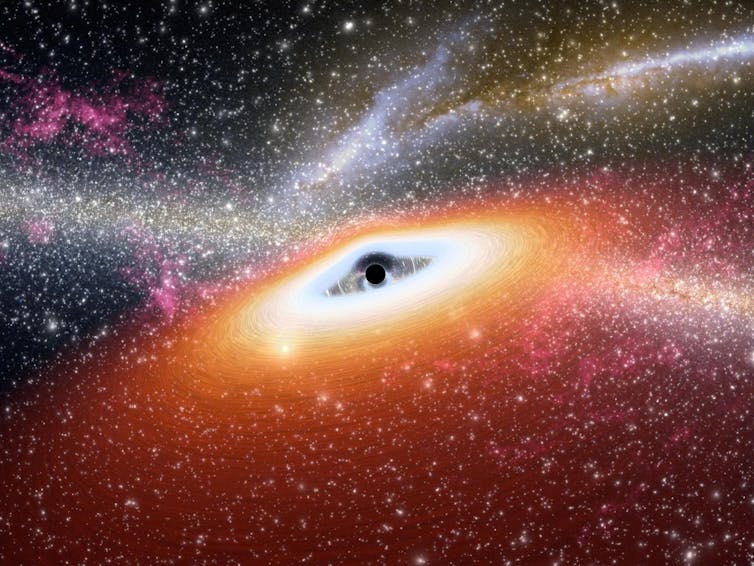What is the most important thing a scientist needs? – Casey, age 6, Perth, Australia
Hello Casey! Thanks for this good question. Unfortunately, there really isn’t one simple answer. So I’m going to talk about three important things.
Scientists must be good at asking questions. They must be good at investigating the world to find answers to their questions. And they need to remember that no matter how much they know, there is always more to learn.
Asking a question
Most scientists are inspired by the desire to understand how things in the world work. That means they start by asking questions.
The question may be driven by curiosity about something amazing in nature, such as “Why do stars seem to twinkle?” or “Why do these birds have such beautiful feathers?” Or they may be driven by a desire to help the community (or even the whole world) with a problem, such as “How can we keep this river healthy?” or “What can we do about climate change?”
But all good scientific questions have something in common: they will lead scientists to some sort of research what they can do to try and find answers.
Scientists investigate in various ways. Some examples are observing how animals behave in the wild, measuring how plants grow over time, conducting experiments in a laboratory, or using computers to create virtual versions (often called simulations) of black holes.
Read more:
Curious Kids: can black holes become white holes?
Find answers
Different scientific questions require different answers. Here are some examples (asked by other curious kids!).
Why do onions make you cry? How do Ants Walk on the Ceiling? These questions require explanation: who can tell us why or how something works that way.
Can octopuses evolve until they take over the world and travel to outer space? This question requires an explanation about the octopus and also prediction about what may (or may not) happen in the future.
How many stars are there in outer space? This question requires number (but it would be helpful if the answer clarified a bit too).
 –
–NASA
How do scientists probe the world to find answers? Often it takes a lot of training and creativity. There is something called scientific method which you can think of as a kind of recipe for doing science. It works like this:
-
Ask something
-
Create a temporary answer (called hypothesis) on your question
-
Do experiment to test your hypothesis
-
Write down what you learn, so that others can learn from it too.
This is a good way to do science, and many scientists always follow these steps. But many others don’t. Some scientists conduct experiments. Some make observations instead, or create models and simulations of the things they want to learn.
Then, not all scientific projects start with a hypothesis and then test it. Some start with big open-ended questions and probe them by exploring. Actually there is no such thing as one scientific method, there is only a series of scientific methods.
Read more:
How many stars are there in space?
There’s always more to learn
Becoming a scientist requires a lot of learning. But it’s important for scientists to remember that they don’t know everything. A good name for this is intellectual humility. This “intellectual” has to do with how smart we are, and “humility” has to do with how we recognize our own limits.
So, “intellectual humility” means realizing that you sometimes make mistakes. It also means listening to other people’s ideas rather than just thinking you’re always right.
The relationship between science and truth is complex. Scientists work hard to learn the true things about the world. But the things we think are true change over time. Several hundred years ago, people thought that when we got sick it was because of some kind of poison in the air. Then we (scientists) have learned about bacteria and viruses, and discovered that they can make us sick. But we still haven’t figured out everything about how it works.
It’s great to be curious – there’s always more to learn!
Read more:
Curious Kids: could octopuses evolve until they take over the world and travel to space?
Do you have any questions you’d like to ask an expert? Ask a parent or an older person to send us your question.
When submitting an inquiry, make sure you include your short name, age, and city of residence. You can:
Arina Apsarini from Binus University translated this article from English.
–


